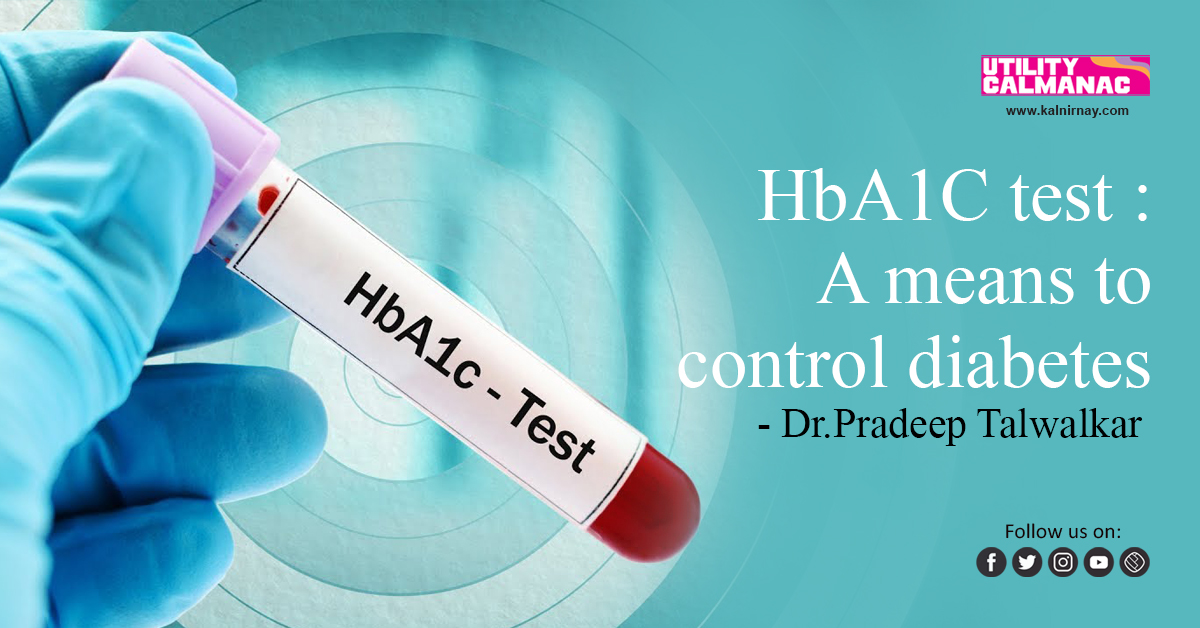HbA1C test: A means to control diabetes
A fairly new entrant in the list of routine diagnostic tests, HbA1C’s popularity among health practitioners has risen for obvious reasons. It is considered to be one of the best diagnostic procedures to assess and understand one’s control over diabetes. The results of this blood test prove essential for an accurate diagnosis and an optimal line of treatment. So what is this magical test all about?
Glycated haemoglobin (HbA1C) is a type of blood test that can be conducted at any time of the day. Normally, the HbA1C levels in an individual should be between 4 and 5.7 per cent. Those with HbA1C readings between the 5.7 to 6.4 per cent range are considered to be at the pre-diabetic stage. This means that there’s a high chance that the patient may develop diabetes at a later stage. If the patient is already diabetic, this reading reveals that the individual has healthy control over their disease. A reading above 6.5 per cent means that the patient has diabetes, with little or no control on their sugar levels. This increases the chances of diabetes-related complications and diseases.
One of the biggest plus points of this test is that it determines the average blood sugar levels in the patient’s body over a period of 2-3 months. Regularly testing these levels gives the doctors comprehensive information about the patient’s control over diabetes and allows them to make necessary alterations to their treatment protocol.
What sets this test apart?
The inherent limitations of other blood investigations in detecting sugar levels can be overcome with the HbA1C test. For example, some diabetics do not follow any discipline when it comes to controlling their diet, exercise, and medication. However, as the date for their routine investigations comes closer, they tend to observe some of these protocols. Thus, these people may show excellent levels of sugar in their blood, but these results are deceptive as the control over their sugar levels is temporary. However, the HbA1C test will reveal their historic blood sugar levels and the treatment can be planned accordingly. On the other hand, some diabetics observe strict discipline in terms of their lifestyle but may have to account for an occasional indiscretion in terms of exercise, diet or medication. If their blood samples are taken on that very day, their sugar levels may be on the higher side. In such situations, the HbA1C test will reveal that their sugar levels are in control. This will also help prevent the side effects of an unnecessary increase in medication. Hence, undergoing the HbA1C test every three to six months is beneficial for diabetics.
HbA1C levels
Every diabetic must frame their individual goals and targets after consulting their doctor or diabetologist. For instance, the HbA1C levels for pregnant women should be around 6 per cent, for young diabetics, this number should be between 6- 6.5 per cent, for the middle-aged 6.5- 7 per cent, And for the age, it can be within 7- 8 per cent. A range of 7.5- 8 per cent is advised for those who suffer from cardiac ailments, kidney disease, paralysis or cancer.
Just undergoing the HbA1C test every three to six months and preparing a file of these reports will not help attain these goals. If these reports point to high sugar levels in your blood, then discuss this with your doctor to diagnose the underlying causes and deal with them.
For example, undergoing blood tests on an empty stomach in the morning, and two hours after meals may show that blood sugar levels are satisfactory or under control, but the HbA1C reading may be as high as 8.5 per cent. Then, check if you had stopped your medication for a few days in the last two months. Did you skip diet control and exercise (Of course reasons like heavy rainfall in Mumbai, the lockdown, a series of weddings among close relatives may come in handy as convenient excuses)? Are you among those who eat sparingly in the morning but eat a heavy dinner at night? Then, it may be beneficial to intermittently check your blood sugar levels two hours after dinner by using a glucometer. Do away with any lapses for your own benefit.
If you want to stay away from diabetes-induced diseases and enjoy a good quality of life and a self-reliant lifestyle, then meeting HbA1C targets is a must. Constantly depending on random blood sugar level check-ups may be dangerous for you. Hence, undergo an HbA1C test with the advice of your doctor. Do not fall short here. This is for your own benefit. This will help overcome diabetes and related ailments in the nick of time.
To read more English blogs, visit our blog section.
– Dr Pradeep Talwalkar

